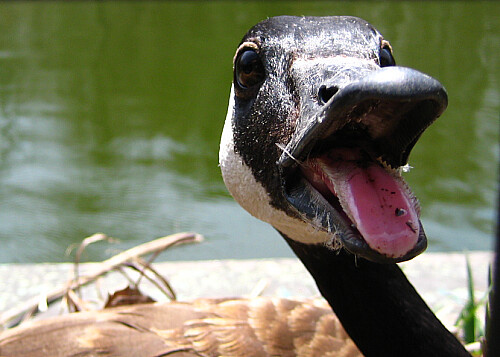Chesnut-sided Warbler
We didn't get a very clear shot of him but you can distinctly see the chestnut flanks on his belly.
Magnolia Warbler
The Magnolia Warbler gets its name from Alexander Wilson, a prominent ornithologist from the late 18th century. According to Wikipedia, James Audobon was "decidedly ambiguous" towards him and his book of bird portraits. I wish I knew if that was true, and if so, why?! Was there some sordid love affair? Was it jealousy because of the quite extensive list of species bearing Wilson's name? I suppose we'll never know. Wilson named the Magnolia Warbler as such because he first spotted it in a Magnolia Tree in Louisiana, although that is by no means its preferred habitat.
Magnolia Warbler Profile
The birdwatchers on the bench were playing the Blackburnian Warbler call to try to attract more birds. Jury's out on this practice....much like the piles of birdseed in Prospect Park, playing calls seems sneaky and unfair, but I'm sure if done appropriately it doesn't do any damage.
We've got a big post coming up. We spent the weekend at our favorite camping spot in the Catskills and added a whole roster of new species to our spotted list, including Mr. Red White & Blue himself!




